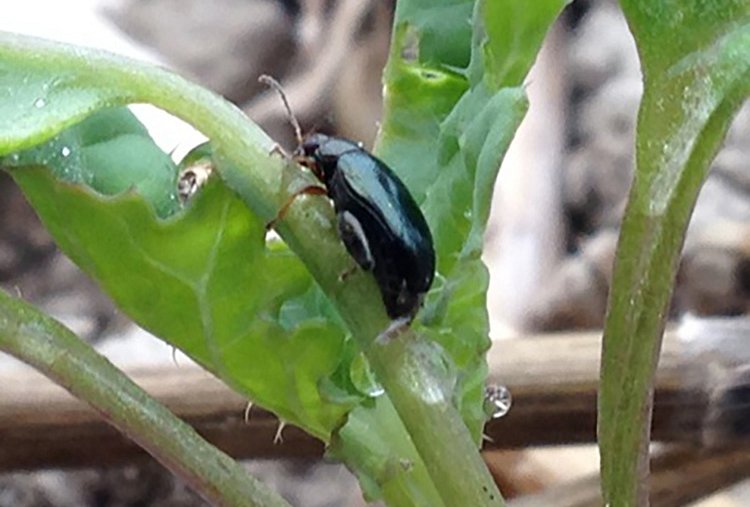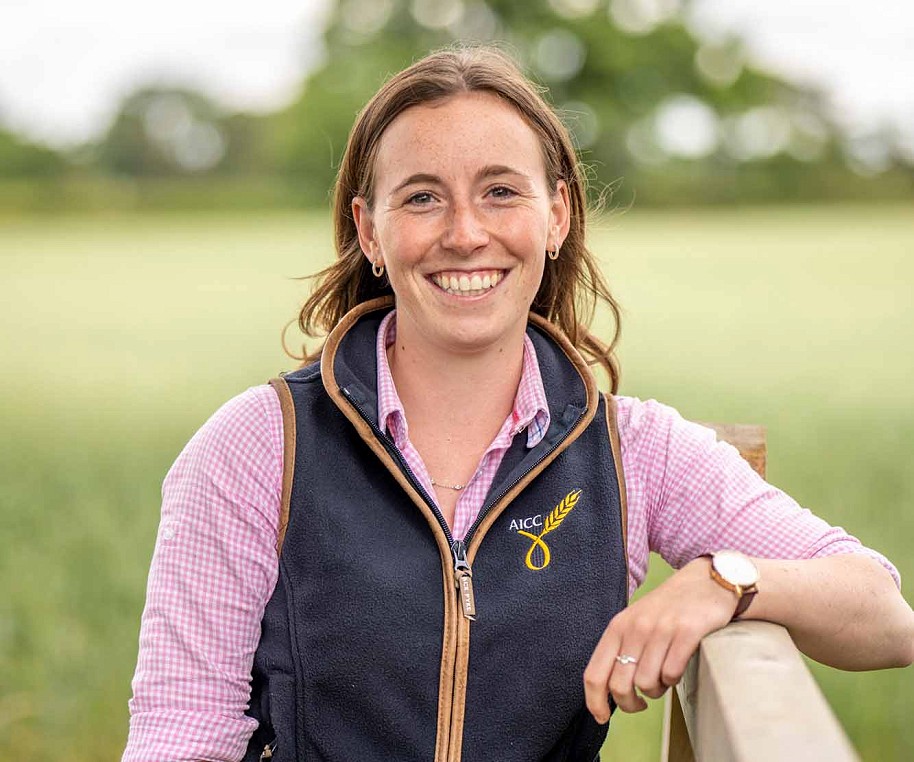News
News
See our news stories below

Alternative strategies for CFSB control needed this spring
10 May 2016
Controlling cabbage stem flea beetle (CSFB) is going to need a step change in approach, was the warning from Alan Dewar of Dewar Crop Protection, at the recent Association of Independent Crop Consultants annual Conference (AICC), near Towcester, Northamptonshire.
Where crops are badly infected we could be looking at infection levels of over 2 million adults/hectare and programmed spraying will not control this, which leaves us in a crisis situation, with regards to effective control of CSFB, he said.
“Flea beetles move about at different times every autumn so it’s difficult to get the timing right for spraying. Also we cannot ignore the fact that there is increasing resistance to pyrethroids; we are looking at over 50% resistance in some areas, and I don’t see any effective control from other non-pyrethroid autumn sprays such as Biscaya, which leaves us without a viable control option.”
So what can be done to help control this devastating pest in oilseed rape? He asks.
“We need to look at cultural control practices such as early sowing; August if possible. Increasing seed rates will also help to dilute the damage a given population of beetles will have.”
He also suggests removing flushes of volunteers thereby depleting the food source of the adults that are developing their ovaries in an attempt to reduce fertility before they attack the newly emerged crop.
“Consider providing a trap crop around the edge of the main crop as this may encourage the beetles to lay their eggs in the trap crop and not the main crop, and this can be sprayed off in late autumn to take them out.”
Longer term Dr Dewar believes that an inability to control CFSB could move OSR production to areas where currently the threat is reduced such as the north and west.
“Although a bit extreme, in some areas we may even need to consider putting sheep into established crops to eat the leaves containing the flea beetle larvae. This might reduce the number of larvae pupating in the soil, and thus reduce adult emergence in the summer.”
“What is certainly needed is a comprehensive, independent study to devise an IPM strategy for controlling this now-epidemic pest, as we can longer rely on established control methods.”
Recent figures published by the AHDB estimate that 1%, which is about 6,000ha, of winter oilseed rape crop losses will be due to cabbage stem flea beetle activity.
As in 2014, crop loss and damage estimates were calculated by ADAS using information supplied by AICC agronomists.
For more information go to:
Back to NewsArchive
- July 2025
- May 2025
- April 2025
- March 2025
- January 2025
- December 2024
- November 2024
- July 2024
- June 2024
- May 2024
- April 2024
- March 2024
- February 2024
- January 2024
- December 2023
- November 2023
- October 2023
- September 2023
- July 2023
- June 2023
- May 2023
- April 2023
- March 2023
- February 2023
- January 2023
- December 2022
- October 2022
- September 2022
- August 2022
- July 2022
- June 2022
- May 2022
- April 2022
- March 2022
- February 2022
- January 2022
- December 2021
- November 2021
- October 2021
- September 2021
- June 2021
- May 2021
- March 2021
- February 2021
- January 2021
- December 2020
- November 2020
- October 2020
- September 2020
- August 2020
- June 2020
- May 2020
- April 2020
- March 2020
- February 2020
- January 2020
- December 2019
- November 2019
- October 2019
- September 2019
- June 2019
- May 2019
- April 2019
- March 2019
- February 2019
- January 2019
- December 2018
- November 2018
- October 2018
- May 2018
- April 2018
- February 2018
- November 2017
- October 2017
- June 2017
- May 2017
- March 2017
- January 2017
- December 2016
- November 2016
- September 2016
- July 2016
- June 2016
- May 2016
Interested? Get in touch
We are here to help, engage & listen
FARMERS: Are you seeking truly transparent advice? Are you concerned about input spend? Contact us to find a crop consultant near you who only has one margin in mind – yours!
CONSIDERING MEMBERSHIP OF AICC? Contact us for details of how to apply and the criteria required. Join the largest group of independent agronomists in Europe and benefit from all it has to offer.
INDUSTRY PARTNERS: Would you like to reach 48% of the UK advice Market through our members? Exhibit at our national conference each year? Get in touch for more information on how to.
CONSIDERING A CAREER IN INDEPENDENT AGRONOMY: See our AICCA page
Become a member
AICC is the largest group of independent crop consultants in Europe and aims to continue to enhance its professional recognition throughout the agricultural industry, promote the interests of its members and encourage all truly independent crop consultants to become members.
Apply


